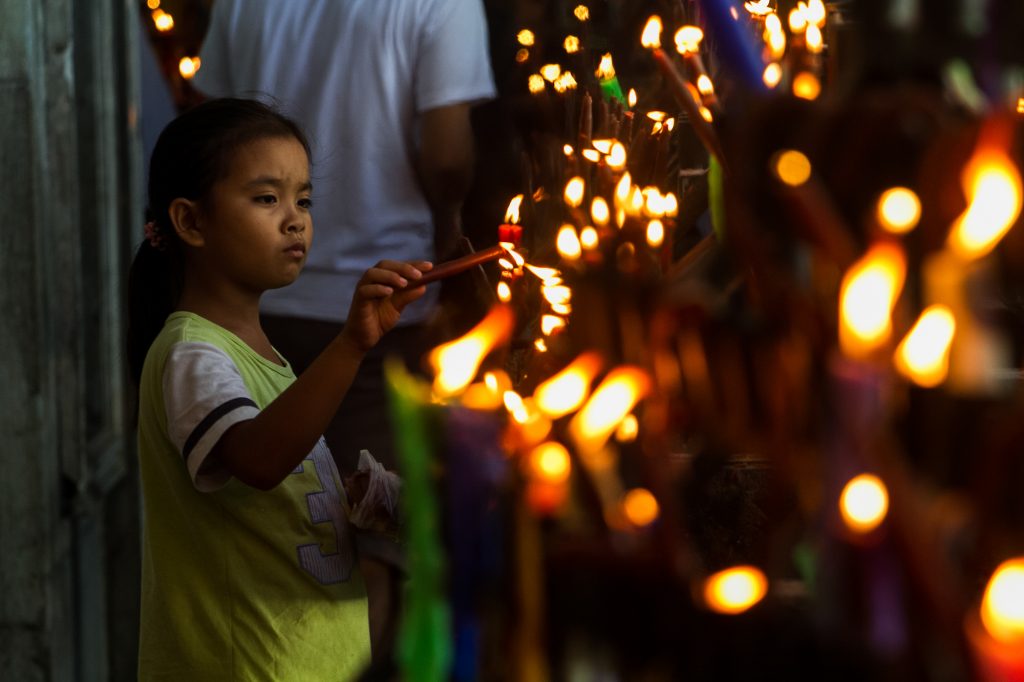
God is the life of all that is and will ever be. God is the spark that inflames it, and the lullaby that puts it to sleep. The hand of God reaches as far as the infinities of time, and as deep as the infinitesimals of space.
But even as he permeates the cosmos in all its totality, he still manages to bring a sense of meaning and purpose to each and every being in his creation, and therefore cherished in many different images. He is the Spirit, or the “Force”, or the “Tao”; or our “strength” or “inspiration”; our “liberator”, “guide”, “companion”, “Advocate” or “Father”.
He is “Wisdom”; “Compassion”; “Mercy”; “Love”.
We may know him through different names and symbols, but to those who fully understand, he is the “real deal”, a true friend concerned in uplifting and enriching the human condition.
But our view of God usually does not begin in such ways that rightfully endears him to us. As we go through life, this view may take interesting twists and turns, with the unfortunate result that some of us may actually live and die not knowing or not even caring who God really is.
When we were toddlers and quick to absorb into affective memory whatever is taught to us, our imaginations are essentially tabula rasa; and so, our image of God may be of the “Santa Claus” type, a God who rewards the behaved and punishes the naughty. We may have been initially shaped with stories about this domineering and punitive “old man in the sky”.
When we were young children, and quite capable of communicating with each other, our influenced personalities may still be colored with somewhat differing perceptions of the Spirit, depending on the histories of our parents and caregivers, yet are slowly being stabilized that we are already clinging to and insisting on individual versions of “God”. These may range from an Odin-like patriarchal figure who we may have assumed to be the father of our favorite superhero; to the proverbial sage character who like a solitary Zen monk, dispenses snippets of sapience whenever the opportunity presents itself.
But in most cases, we have been giving future generations a God who is emotionally distant and detached from our human condition. We as parents and caregivers have failed to come close to describing “Love”, as our Lord vividly portrayed him in his time.
So, as we enter adolescence and young adulthood, spirituality is hardly an option. Our affinity to the things of the world will never be more distractive than at this critical time. For some, the usefulness of any “God-concept” is lost forever, because the idea of a transcendent Spirit intervening in personal circumstances will no longer make sense to those conditioned and trained to take control of their own lives. Given that our own primeval images of God may be summed up as “domineering and punitive” or “distant and detached” because we never had strong caring images of him to begin with, indeed many will be inclined to believe in a “God that never was”.
We have yet to recover our understanding of the true God, an eternal Parent closely and intimately intertwined in our human condition. As Christians, our involvement with the courageous Jesus will hopefully give us the impetus to recover the reality of this loving and compassionate Spirit.
Brother Jess Matias is a professed brother of the Secular Franciscan Order. He serves as minister of the St. Pio of Pietrelcina Fraternity at St. Francis of Assisi Parish in Mandaluyong City, coordinator of the Padre Pio Prayer Groups of the Capuchins in the Philippines and prison counselor and catechist for the Bureau of Jail Management and Penology.
The views expressed in this article are the opinions of the author and do not necessarily reflect the editorial stance of LiCAS.news.
Source: Licas Philippines
0 Comments